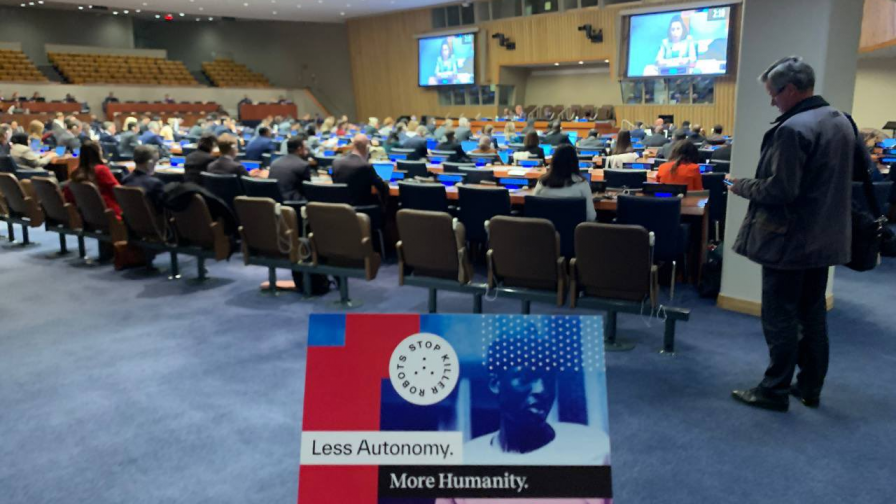
This story was originally published by UNA-UK.
UNA-UK welcomes the decision by the UK Government to endorse, along with 69 other states, a joint statement on lethal autonomous weapons systems delivered last week at the UN General Assembly. During the run-up to the statement, UNA-UK, together with colleagues from the Campaign to Stop Killer Robots called on the UK to join this important initiative.
The initiative, coordinated by Austria, is the largest cross-regional joint statement made to date on autonomous weapons, and it is encouraging to see states mobilising around a shared recognition of the challenges and a commitment to work towards internationally agreed rules and limits. The text demonstrates positive momentum which we hope will be built on in November as states meet in Geneva for further discussions on the issue.
The statement recognises the increased convergence among states on key substantive issues, in particular the approach – supported by UNA-UK and the Campaign to Stop Killer Robots – based on a legally binding prohibition of autonomous weapon systems that cannot be used in compliance with International Humanitarian Law, and regulation of other types of autonomous weapon systems.
Lethal autonomous weapons systems, also known as “killer robots”, are becoming a key issue of concern for international peace and security, with leading AI experts predicting that without strict prohibitions these weapons will revolutionise how wars are fought. The UN Secretary-General has called on all states to work towards a ban, describing machines capable of taking human life without human involvement as “politically unacceptable” and “morally repugnant”.
UNA-UK has been campaigning on this issue since 2013 and hosts the coordinator of the UK Campaign to Stop Killer Robots. Our latest report on this issue looks at the links between autonomous weapons systems and the UK academic research sector.
Read more
